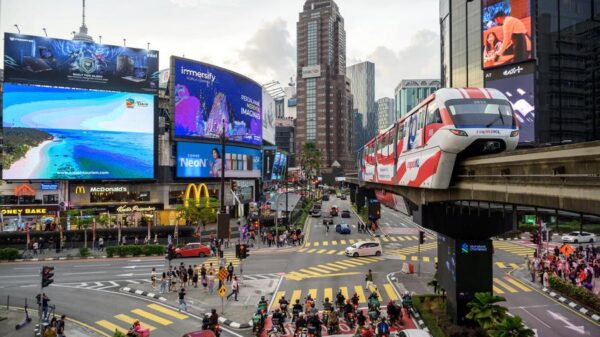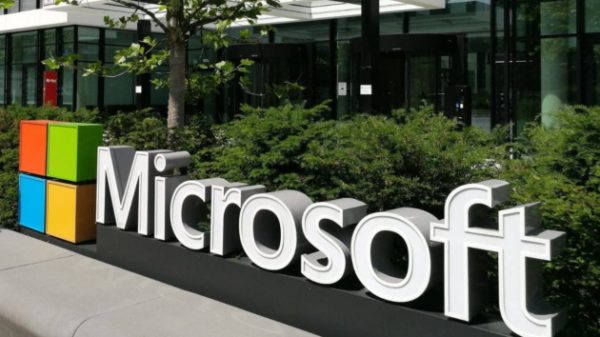By Manuel Moureh
NAIROBI, Kenya, June 23 – Artificial Intelligence (AI) has come a long way since its inception in the 1950s. I won’t take you back there, but it’s worth noting that people once envisioned flying cars and fully autonomous vehicles in the 21st century.
Well, that future is now a reality in some countries, with self-driving taxis and Uber choppers in Dubai. Closer to home, AI is transforming our daily lives in more ways than we realize.
Let me take you through my morning routine. Today, I woke up and said, “Hey Google, how is my schedule today?” My phone promptly informed me about my day’s activities.
I then requested some music on Spotify, and without any context, it started playing my favorite jams back-to-back.
As I sat down to work on my computer, I realized that by the first hour of my day, AI had already gathered significant insights about me. And by the end of the day, I’d start receiving relevant ads and articles tailored to my interests.
The marketing industry is one of the many sectors profoundly impacted by AI. AI is being used to analyze customer data, personalize marketing messages, and enhance advertising campaigns, among other applications.
Marketers can now quickly analyze large datasets, identify trends, and customize consumer communications using AI. As long as technology advances, AI will continue to reshape the marketing landscape. Let’s explore some ways in which AI is shaping the future of marketing.
AI for Customer Targeting and Profiling
We all love feeling special, whether it’s through personalized Spotify playlists or Safaricom’s birthday reminders. The same applies to marketing.
Thanks to AI, companies can now understand their customers on a whole new level. Gone are the days of relying solely on focus groups and endless surveys to comprehend the audience. AI enables businesses to gather, analyze, and segment customer data within minutes.
Armed with this information, companies can develop personalized marketing messages that resonate with specific consumers.
A great example of AI-powered customer service is Safaricom’s AI chatbot called Zuri. It assists customers with various inquiries, leveraging natural language processing to understand and respond effectively.
This personalized customer experience enhances brand engagement. As consumers engage with chatbots and other platforms, AI kicks in, analyzing their behavior and patterns, and immediately serving them with personalized ads.
At our company, we leverage AI throughout the entire customer funnel. With the help of Google API, Facebook API, and other platforms, we target customers, qualify leads, and create individualized customer journeys from start to finish.
Optimization and Creation of Content using AI
Once customer data has been gathered and analyzed, it’s crucial to produce high-quality content that meets their needs. AI helps marketers develop unique and tailored content that appeals to specific audiences.
By examining consumer behavior and preferences, AI suggests topics, tones, lengths, and styles that resonate with the target audience. This, in turn, boosts brand engagement and stimulates conversions.
AI-powered tools also aid in content optimization for search engines. They identify keywords, evaluate existing content, and automatically suggest optimizations to increase visibility and organic traffic.
For instance, if you work in FMCG and have different brands of a certain product like flour, AI tools like ChatGPT can help you customize your ad copy for each consumer segment and analyze its performance.
AI can even predict the likelihood of content generating engagement before it’s published. By analyzing historical behavior data and social indicators, marketers can forecast future engagement metrics.
Predictive analytics is one of my favorites, as it allows me to analyze historical data and make predictions about future consumer behavior within my target audience.
Social Media Marketing with AI
Social media has become a crucial component of marketing plans, and AI is further revolutionizing its landscape. AI enables businesses to automate the management of social media accounts, saving time and effort.
It predicts and addresses social media trends, enabling the production of content that resonates with the audience. Marketers leverage AI-powered software for social listening and sentiment analysis, gaining valuable insights into how consumers feel about their brands.
However, it’s essential to remember that AI should complement a comprehensive marketing strategy with a human touch. At our company, we use AI to understand consumer needs, curate personalized messages, and publish them when the audience is most active.
But social media is more than just publishing; it’s about fostering engagement and interactive avenues for customers to connect with brands.
Artificial Intelligence in Influencer Marketing
One of our specialties at our company is influencer marketing, and AI plays a crucial role in selecting the right influencers for campaigns.
We utilize an AI-based criteria algorithm that analyzes the audience of each influencer based on relevance, brand fit, engagement metrics, audience demographics, brand safety, performance history, sentiment analysis, content quality, and influence authenticity.
With AI, what used to be a long manual process now takes minutes, allowing us to focus on building relationships with influencers.
As a marketer, understanding the value of influencer marketing and leveraging AI for successful campaigns is essential. The rise of influencers, both micro and macro, has created a wave of creative and engaging content.
Missing out on this trend would be a big deal. At our company, we collaborate with influencers and creators, big and small, to ensure our clients get the results they need.
Brands can partner with creators like Terence Creative, Milly Chebby, Joy Kendi, and Daddie Marto to target millennials, while influencers like Cynthia Kariuki, Carrie Wahu, and GK Nyambura are ideal for reaching Gen Z audiences. AI platforms like AIfluence and Wowzi facilitate the selection of suitable influencers for campaigns.
In conclusion, AI is revolutionizing the future of marketing. As a Gen Z CEO leading Trance Studios, I witness firsthand the tremendous impact AI has on our industry.
From customer targeting and content optimization to social media marketing and influencer collaborations, AI is reshaping the way we connect with consumers. Embracing AI as part of a comprehensive marketing strategy is crucial for staying ahead in today’s dynamic landscape.
So, let’s harness the power of AI and craft marketing campaigns that resonate with our audience, driving meaningful engagement and creating lasting connections. Together, we can shape the future of marketing in Kenya and beyond.
The writer is Trance Studios CEO





















































